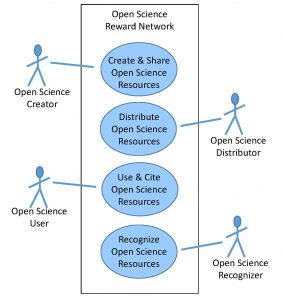5 May 2016
Changing science culture by contributing to open science
Posted by Nanci Bompey
By Robert R. Downs
This is part of a new series of posts that highlight the importance of Earth and space science data and its contributions to society. Posts in this series showcase data facilities and data scientists; explain how Earth and space science data is collected, managed and used; explore what this data tells us about the planet; and delve into the challenges and issues involved in managing and using data. This series is intended to demystify Earth and space science data, and share how this data shapes our understanding of the world.
Like other scientific communities, the Earth and space science community has an opportunity to improve. Open science and similar concepts, such as scientific transparency and reproducible science, have become prominent recently because they are recognized as valuable attributes for science practice. While there appears to be increasing awareness of the importance of such concepts, changes in behavior can take more time and may require incentives. It is understandable that, in some instances, individual actions might not change until the benefits of making such changes are apparent. Recognition of the value of open science also could serve as an incentive to initiate changes in individual and group behavior, which could contribute to changes in the culture of scientific communities. Cultural changes that enable open science offer potential value to society, including science communities, in terms of increased accessibility to scientific resources and to the potential impacts of science. In addition to believing in the value of open science, rewards can serve as an incentive to change behavior and the culture of science. Like other science communities, the Earth and space science community can contribute to the changing culture of science and such contributions can be rewarding in many ways.
By participating in reward networks that offer incentives for open science behavior, incremental improvements to science practice can be beneficial for contributors to open science and for science communities. For example, open data creation and sharing can be rewarded when users of open data cite such uses in their publications and when hiring and promotion committees recognize that citations of open data represent scientific contributions. In particular, creators of open data benefit by seeing their data used for new scientific studies and by having their data creation and sharing efforts recognized for such uses. Distributors of open data benefit by enabling new uses of data products and services that result in further contributions to science. Subsequent users of open data benefit by using shared data to complete their scientific studies and by being recognized as responsibly providing attribution for the use of those data. Hiring, promotion, peer-review, and sponsorship committees benefit by recognizing open data contributions and selecting open data creators, distributors, and users who have a record of contributing to open science.
Similarly, the same kinds of reward networks that apply to open data also can apply to open source software contributions to science, providing value to science and incentives for contributors. Creators of open source software can receive contributions from others who improve open source software by sharing code, documentation, reviews, and testing results. Open source software that enhances science infrastructure or enables scientific studies also can be shared and reused to conduct new studies. Like the use of open data, such uses of open source software can be cited in publications about research that used the software. Furthermore, such creation, sharing, and use of open source software can be recognized as contributions to open science by hiring, promotion, peer-review, and sponsorship committees who select open source software contributors for new opportunities.
Many members of the Earth and space science community are contributing to open science by creating open data and open source software. Likewise, others are sharing, using, and citing these resources. Furthermore, some hiring, promotion, and sponsorship committees are recognizing these and similar contributions to open science. The value of such contributions can be observed in the open data and open source software that are freely available from online archives, scientific data centers, and other repositories; in the publications, including open access articles, which cite the use of those resources; and in the hires, promotions, and sponsorship of contributors to open science. While these practices are not new, now is the time for more members of the Earth and space science community to contribute to open science and help change the culture of science.
—Robert R. Downs is senior digital archivist and acting head of cyberinfrastructure and informatics R&D at the Center for International Earth Science Information Network (CIESIN), of Columbia University, which operates the NASA Socioeconomic and Data Applications Center (SEDAC).



 GeoSpace is a blog on Earth and space science, managed by AGU’s Public Information staff. The blog features posts by AGU writers and guest contributors on all sorts of relevant science topics, but with a focus on new research and geo and space sciences-related stories that are currently in the news.
GeoSpace is a blog on Earth and space science, managed by AGU’s Public Information staff. The blog features posts by AGU writers and guest contributors on all sorts of relevant science topics, but with a focus on new research and geo and space sciences-related stories that are currently in the news.